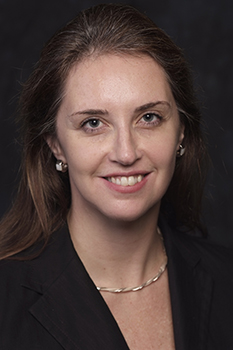Latest News Archive
Please select Category, Year, and then Month to display items
09 December 2020
|
Story UFS entral academic advising team
|
Photo Pixabay

It wasn’t easy, but we all got to this point because we stayed calm and made the effort to learn on even when it was difficult.
The University of the Free State (UFS) has remained committed to supporting you in every way possible, and as you prepare for the final assessments, remember to access the support tools you will need in order to successfully complete the 2020 academic year: https://www.ufs.ac.za/toolsforsuccess
Main exams are running from 30 November to 19 December 2020
All of the best, and break a pen in your upcoming final assessments. For those of you who will be graduating, we cannot wait to see you in that graduation attire; and those who still have some way to go, we cannot wait to serve you again in 2021 as we continue the pursuit of academic success!
Below are five main study tips that you can use for final assessment success:
1. Set a realistic study schedule
You might think that studying for eight hours straight for four days before the exam, will help you get through the work in time. See final edition of the #UFSLearnOn for more information.
2. Structure and organise your work
If your notes are organised, it is also easier for your brain to recall information, even when you become nervous during exams.
3. Practise with an old exam/semester test paper
Practice makes perfect, and although the final assessments might look different in how they are administered, it will still help to practise using old tests and exams.
4. Adapt your strategies to the content
What works for one module or even one learning outcome, might not be effective for another. You need to continually adapt your note-taking and study approaches. See #UFSLearnOn final edition for different study methods.
5. Healthy body, healthy mind
Your brain needs optimal care to perform at its best, and getting physically active (even if it is by jumping in one spot if space is limited) forces your body to release neurotransmitters responsible for positive emotions, which assist in retaining information in your memory …
Download the final edition of #UFSLearnOn that points you towards the resources you’ll need to ace your final assessments and end 2020 off on a high note!
CDS receives another international grant from the NIH
2015-12-11
 Dr Carla Sharp |
The Centre for Development Support (CDS) is partner to another international research grant from the National Institutes of Health (NIH) in the United States. The new project follows an earlier project funded by the NIH, which focused on the mental health of orphans and vulnerable children.
The new project is to focus on investigating possible improvements in the mental health and cognitive development of orphaned and vulnerable children aged between seven and eleven years, by means of improved community-based care in the Mangaung Township area in Bloemfontein. The project will stretch over three years and has a budget of approximately R10 million.
“We shall use the Mediational Intervention of Sensitizing Caregivers (MISC) approach and it will be applied by community-based organisations,” says Dr Deidre van Rooyen, Acting Director of the CDS.
MISC applied by caregivers has produced good results elsewhere in the world. “This is the first time MISC will be tested by community-based organisations,” says Prof Lochner Marais of the CDS, who is also the principal investigator in South Africa.
“In addition to working with four community-based organisations in Mangaung, Childline Free State will also be actively involved in the project,” Marais added.
The project is being conducted in collaboration with Dr Carla Sharp as principal investigator at the University of Houston, and Prof Michael Boivin (an international expert on MISC) at the Michigan State University. Dr Sharp was recently appointed visiting professor at the CDS.
“It is indeed a great privilege to be working with the CDS on yet another project,” Dr Sharp remarked, also noting that “the project is preliminary in nature and could evolve into a much bigger research project in future”.